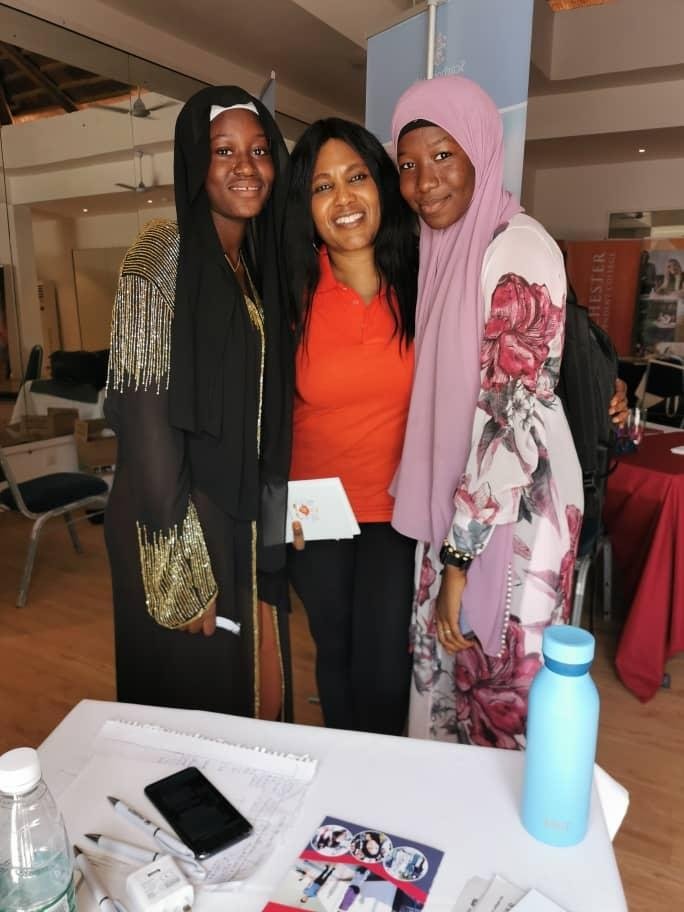The UK Labour government has introduced 20% VAT on Independent school fees. What are the wider implications of this and do you see the government revisiting this issue?
The election took place a couple of days ago, and we all know where we are now. So, yes, this policy is obviously coming in. They are introducing this 20% VAT to independent school fees. Now, I’m going to be very honest. Everybody is kicking against it saying it’s going to increase fees, it’s going to do this, it’s going to do that. When you look at what the government says it wants to do with this increase, we just hope that that is what’s going to happen. Because if that’s truly what’s going to happen, then I’m not seeing it as a bad thing. I’m seeing it as okay. It’s to increase the general education standards, to bring it up to where it ought to be because let’s remind ourselves, you went to Shiplake, or you went to Eton or Harrow. Those are independent schools. Guess what? Dami down the road didn’t go to Eton, didn’t go to Shiplake, didn’t go to Harrow or anywhere like that. He went to Dalston College, for example. But guess what? Because he’s smart, even though he went to Dalston College, all of you can end up at Imperial College. All of you can end up at Oxford University or at Warwick University, regardless of which secondary school you attended. So we have the likes of you who went to top independent schools and then we have Dami down the road who went to a regular college just next door to where he lives. Nobody has even heard of Dalston College, but it’s there. And because he’s smart enough, he got the grades, he applied to Oxford, he got into Oxford. So, if at the end of the day, all of us are going to end up in these top universities, why don’t we truly raise the standard of this Dalston College? So yes, if that truly is what this extra 20% VAT on fees is going to do, then I don’t see it as a bad thing. Let’s be honest. For the parents who send their children to independent schools, putting aside the ones on bursaries or scholarships or whatever, the rest will still send their children there anyway. In England, there are 560,000 students attending 2500 independent schools. Out of the 560,000 students, only a third of them receive bursaries and scholarships. And out of that, only 1% receive 100% bursaries. Of course, the ones on full bursaries will not be affected because they don’t pay anything anyway. Now, the other third that receive these bursaries are obviously smart kids. If the increase is so high and the parents can’t afford it, remember, they are just one third. The remaining two thirds who pay the full fees will still send their children to these schools because that’s what they do. That is what they want. For many, it’s even a family tradition. In some cases it’s even the grandparents who pay because that is what they have been doing all their lives. It’s just the norm for them. Some of them don’t even know that state schools exist. Now, the ones that would probably be affected are the ones who are on bursaries and scholarships that are not full. The point however is this. If that money can be transferred to the state school sector to raise the standards, the argument surely must be that, if the standard is going to be great in the state school sector, then there’s no reason for you to attend an independent school anyway. If you can’t afford it, which some on bursaries and scholarships may no longer be able to, all they need to do is look to the state school school. Now, within the state school sector, there are also grammar schools. We have the likes of King Edward’s Grammar, Manchester Grammar and some other very good grammar schools that are even doing better than some of the independent schools. What we may then find is a situation where a majority of these parents, even the ones who can afford it, decide to put that money into buying properties closer to where these good grammar schools are, because grammar schools are based on catchment areas, just like all state schools are based on catchment areas. So, if I live in Kent for instance, and I live close to Dartford Grammar School, then I will go to Dartford Grammar School. Even if I don’t pass the test, there’s still a way for me to get in. That’s what they call partial selection. This means some will get in based on the fact that they live close to the school, while others will get in based on scoring the highest marks. Which means things will still work. So, the impact for me is a win-win situation. That’s the way I’m looking at it. I’m seeing a win -win situation. I’m seeing this extra money that is being levied on independent schools going to improve standards of schools generally. And remember, all these independent schools have charitable status, which means they’re charitable schools anyway. There are other things that they can still get the money from so they don’t have to put the fees on that extra VAT, they don’t have to put it on parents. Most of these independent schools are magnificent with beautiful halls, stunning extensive grounds which they can further monetise by hiring out for wedding receptions (during school holidays) saving the couple a small fortune which would be spent on hiring a hall in central London. Others can hire out their sports centre so there are so many ways in which they can get that extra money that doesn’t have to impact the learning of their students. So the way I see it, it’s a win-win situation, everybody wins, nobody should lose here. The kids in the state schools get better teaching, because part of this money is to bring in an extra 2500 teachers to the schools and to give teachers bonuses so that they are encouraged to remain in the profession and not want to leave teaching to retrain and become a dentist or something. So I think it’s a win-win situation and that’s how I’m seeing it. I’m seeing it as a positive thing that would benefit both sectors.

Turning now to the certificate you earned in Leadership and Decision Making. Since the buck will always stop on the table of the leader, is a leader therefore expected to know it all, since he/she will make the final decision?
No, I definitely do not think so. I don’t think so at all. I think the fact that the leader probably owns the organization or has been employed to make all these decisions, I don’t think that decision should rest on him alone. Why? Because as much as you might have the knowledge, the intention, you know what you want from this, I think bringing other ideas in, getting the input of your team is really, really important because what you think you know, you’ll be shocked to discover that actually, you know absolutely nothing. So I think the way to get the best outcome and to make the right decision at the end of the day is to get input from your team members. Get their opinion and then work together on it. Not to say, this is the way. I don’t think that’s good leadership skills at all. I think to be a good leader is to listen to your team members and even other people within that sector. Whatever it is that you are working on, what is their opinion? Why should we go with this? Why shouldn’t we go with that? So, at the end of the day, we all come to a consensus, agree on something tangible and then deliver. That’s how I think it should be. I do not think it should lie solely with the leader just because they have the role of leader.
Subscribe To Unlimited Premium Digest.
This is premium content. Subscribe or Login to read the entire article.
Subscribe
Gain access to all our Premium contents.More than 1,000+ Articles, News, & Scholarships.






































































 EduTimes Africa, a product of Education Times Africa, is a magazine publication that aims to lend its support to close the yawning gap in Africa's educational development.
EduTimes Africa, a product of Education Times Africa, is a magazine publication that aims to lend its support to close the yawning gap in Africa's educational development.

